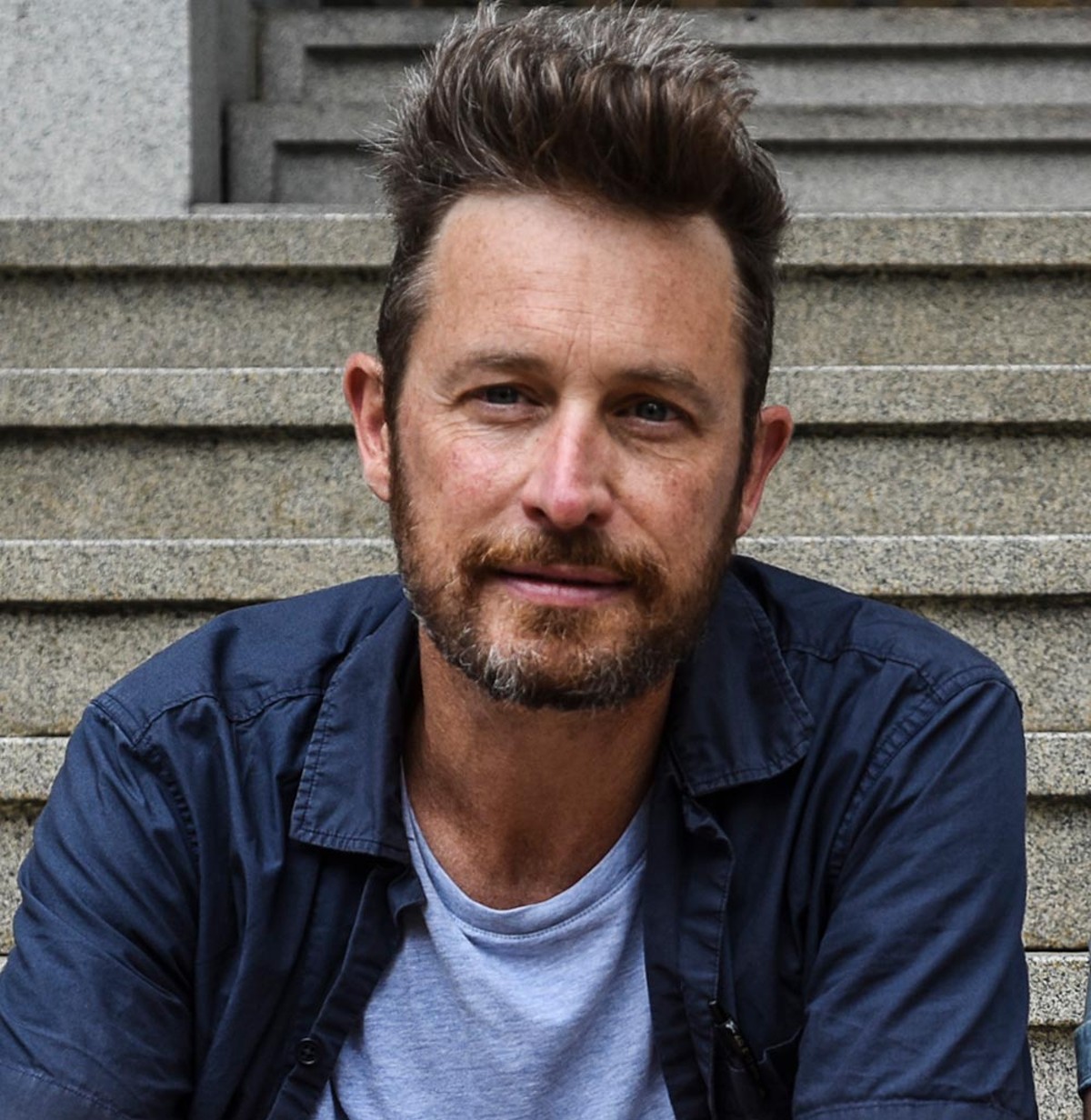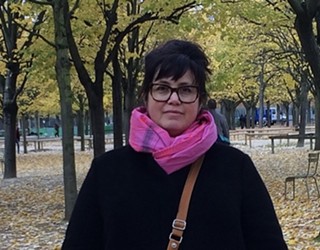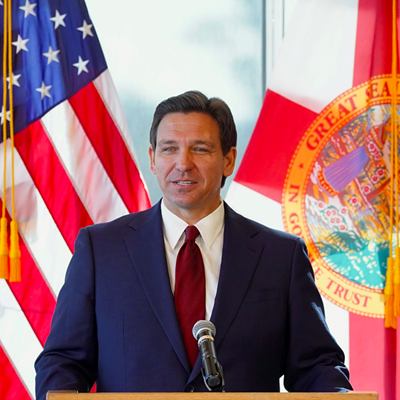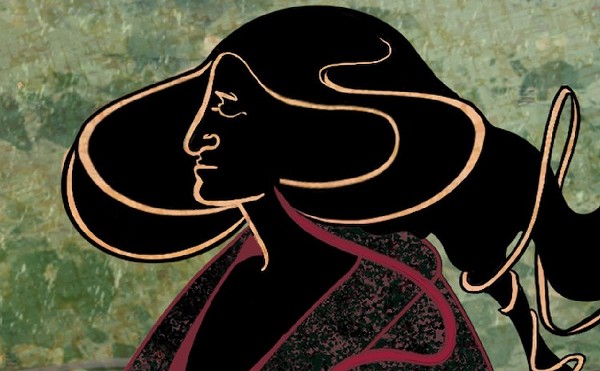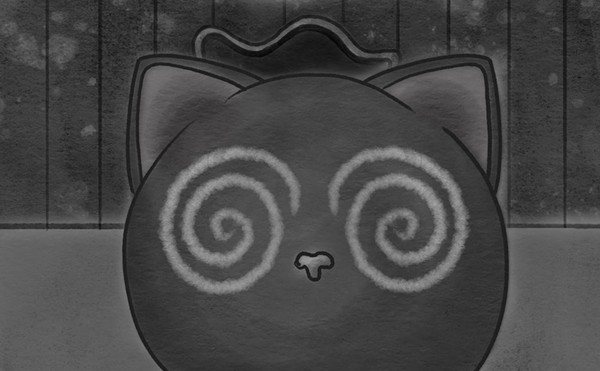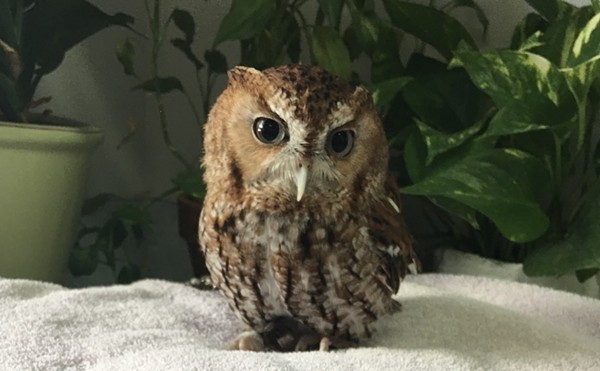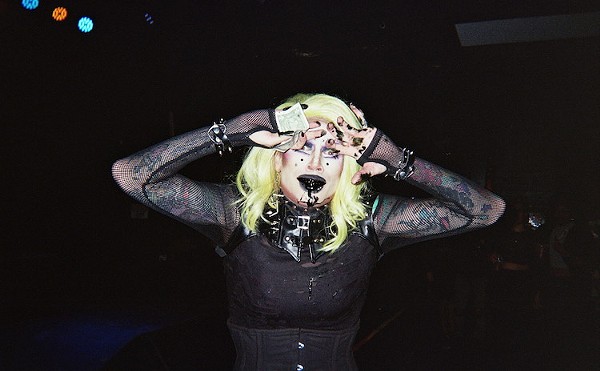Baynard Woods should be familiar to readers of Orlando Weekly for his political column "Democracy in Crisis," which launched at the beginning of 2017 and chronicled the fallout of the election of Donald Trump. We also spoke to Woods and his colleague Brandon Soderberg upon publication of their excellent book, I Got a Monster, a deeply reported and researched exposé of Baltimore's corrupt Gun Trace Task Force — which, just saying, came out well before other books on the subject and David Simon's We Own This City on HBO.
Though he has made his bones in Baltimore, the writer grew up in South Carolina. His parents came up in the Jim Crow era. His grandparents were firmly entrenched in the good-ol'-boy network that ensured their kids went to better schools, escaped DUIs, did community service when they got caught with weed. His great-grandparents were slaveholders. His great-grandfather fought with the Confederates in the Civil War. As a Southern child, Woods didn't question his family history, felt proud of his great-grandfather's soldiering, thought the rebel flag was cool because the Duke boys had it on the General Lee, right? For many years as an adult, after understanding these sins of the past, Woods felt not a responsibility for those acts but a responsibility to act and think differently.
But in 2015, after Dylann Roof killed nine Black people in a South Carolina church, he saw a connection between that act and a story his father told him about his great-grandfather: that he had killed a Black man after the Civil War. When the tumblers fell into place, he realized "a murder our great-granddad committed 150 years ago doesn't have anything to do with [me]" was no longer a tenable stance.
By 2017, in the superheated atmosphere of the Charlottesville riots, Woods could no longer deny that whiteness was the cause of injury to Black Americans, and that as a white man, he therefore shared the onus of guilt.
His book Inheritance: An Autobiography of Whiteness was published this month by Legacy Lit/Grand Central Books, five years to the month after those grisly happenings were ignited by the proposal to remove a statue of Confederate Gen. Robert E. Lee from a public park. (Read an excerpt of Inheritance here.)
OW: Briefly, how would you describe yourself and your family? Or maybe a better question would be, what would that self-description have been five years ago, and what is it today?
Woods: This is such a hard question. Five years ago, I saw myself as a writer and a journalist. Now, I still have that self-conception, but I've also had to realize that I am a white, male writer, that my position of whiteness and masculinity is not the universal, default position with everything else marked by race and gender. I realize more clearly now that I am the inheritor of a system, a criminal conspiracy, set up to allow white men like me to claim we are the universal as a tool toward subjugating everyone else. So now I think I am a deeply flawed person and writer trying to figure out how to undo this conspiracy in which I was raised.
In 2017, we were running your political column, "Democracy in Crisis." How long did that run? What ended it?
I started writing "Democracy in Crisis" at the beginning of 2017 — the first column covered Trump's inauguration — and wrote the last one in mid-2018. The column was, almost obsessively, concerned with the far-right groups like the Proud Boys and Oath Keepers, who have, after the attack on the Capitol, been the subject of much more mainstream coverage. It was obviously still super important to keep covering those groups — and the anti-fascists fighting against them — when I quit in 2018, but I also felt like the column was slightly misguided. I thought that the readers of alt-weekly papers like this one would want our take on what was happening nationally.
And that was right in 2017, maybe, but by 2018, Trump was almost the only story being covered and as more alt-weeklies were closing, it seemed more important than ever for them to cover stories that weren't Trump, stories in their communities. It struck me covering the trial of the corrupt cops me and Brandon Soderberg wrote about in I Got a Monster. It was this huge story of corruption, and yet the national media wasn't interested because it wasn't about Trump. So, I quit the column and we wrote that book. But after it, I knew I had to return to these white supremacist groups — and see how I was implicated.
How did your other work — the column, the Gun Trace book, on-the-ground reporting through the Freddie Gray and George Floyd protests — inform your desire to write this book? Did the reporting lead directly to an interrogation of your family history, or were these parallel processes?
In 2015, I had been covering the Uprising after police killed Freddie Gray for the Baltimore City Paper. Then, almost immediately after that, Dylann Roof murdered nine Black churchgoers in Charleston. He grew up like 10 miles from me. Had the same haircut we all had growing up. And it felt like that movie Us, where a part of me had been left behind and become monstrous. I'd always known that my family were slaveholders ... When I saw Roof's face, I felt like I saw the face of my great-grandfather and I knew we couldn't just escape the past. The next couple years kept making that obvious — especially after the racist rally in Charlottesville in 2017, where I realized the white right was willing to kill for statues of Lee and Jackson.
But I quickly realized that it is too easy to say, "those people are bad." We've all gotten into this thing where, you know, as long as we're not as bad as Trump, we are #resistance, and as long as we can call out someone else, we're cool. And I felt that way a little about covering cops: "These cops are bad and, by pointing that out, I'm somehow good." But the logic police so often use — they can't even follow the Constitution, while we all get [broken] windows enforcement on every minor infraction — applies to white people in general, and to me in particular. White people expect to be protected by the law and not bound by it, and we expect people who aren't white to be bound and not protected. And that goes back to the so-called "slave codes" that my family and other white people created in 1740 in South Carolina and exported to the rest of the "slave states" — creating the logic of whiteness we still live by.
How would you categorize this book — memoir, history, reportage? Where in a bookstore would you shelve it?
I'd love to see nonfiction books shelved like fiction books are — by the author. The kinds of writers I like are curious and write about a lot of different things, and their books are often hard to classify and should just be under literature. This book is primarily memoir, but it is also hard to characterize. There was a draft that was primarily history and reportage, and those still play a role. But I like for a book to be surprising — even to its author. I think people who knew our work were surprised by I Got a Monster. It stuck so closely and cinematically to the perspectives of the characters without our perspective coming in. And then I think people who liked that book are surprised by this one.
Family names are obviously a loaded topic for almost anyone, but your name becomes the focus of a lot of your feelings in this book. Talk to me about that history and your decision about the strikethrough.
After the racist Unite the Right rally in Charlottesville, Baltimore finally took its Confederate monuments down and watching the monuments swing, it struck me that my own name was a Confederate monument, memorializing horrible, totalitarian slavers, above every story I’d ever written. My first impulse was to change it, get rid of it. But then I thought that would continue the coverup that allowed me to ignore this history in the first place. So I strike through my byline as a kind of crime scene tape, a reminder to me of my ethical obligation. But this would be empty if I didn’t try to restore to the record the name of Peter Lemon, a Black county commissioner assassinated by white men, including my great-grandfather, in 1871 South Carolina. In covering up the crime, they erased his name.
It's been five years this month since Charlottesville and the death of Heather Heyer. Fields was sentenced to life in prison, but if anything, there's more violence, and those who experience the consequences of their violence seem to be martyrs of the hate movement. Can you discuss the parallels between Rittenhouse, Roof, Babbitt, et. al. and the Confederate heroes celebrated in your childhood?
In my 20s, I heard that my great-grandfather had killed a Black man sometime after the Civil War. I never really thought about what that meant until I saw Dylann Roof, who murdered nine Black churchgoers in Charleston in 2015. By the time I was covering Charlottesville, I saw the way that each of these terrorist actions encourages others. And it is getting worse. When they stormed the capitol on Jan. 6, they were following, almost exactly, a playbook set by the white supremacists who overthrew Reconstruction in 1876 in South Carolina. Then, "red shirts," as they were called, stormed the capitol and succeeded in occupying it, overthrowing the Reconstruction government, and ultimately ushering in Jim Crow apartheid.
This horrible example — of violently overthrowing a multiracial democracy and calling it a "redemption" — is precisely what the right wing wants to do right now. The terrorists who did that in 1876 were revered. And that provides a dangerous, deadly model for the racist right, who are energized all around the world. They ultimately want to overturn the Civil Rights Act and everything that flows from it. They do not believe in democracy or equality but in white supremacy. We will have to fight them much harder than the Democratic party is doing if we want to keep any of the gains we've made over the last half-century. It is a very dangerous time. More of us need to be willing to play defense and put ourselves in a position to block the harm of people like James Alex Fields, like Heather Heyer and the anti-fascists in Charlottesville were doing.

